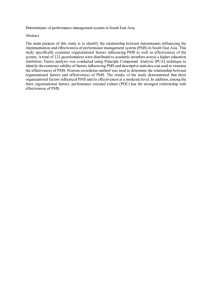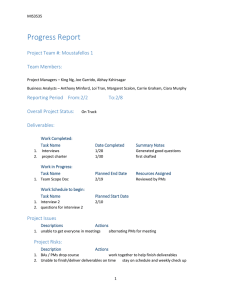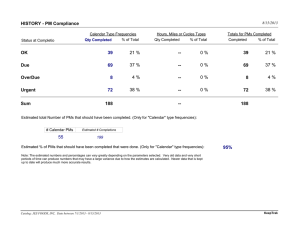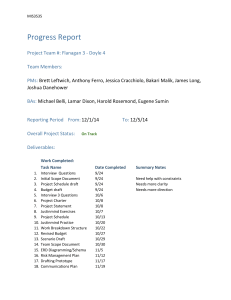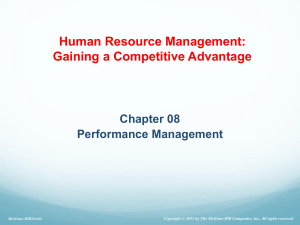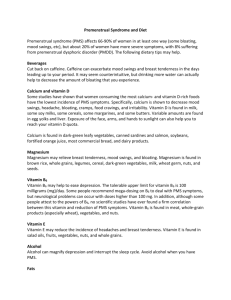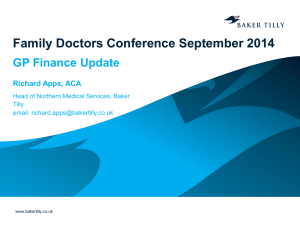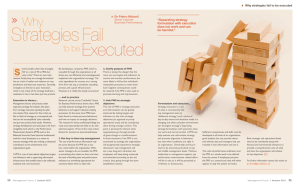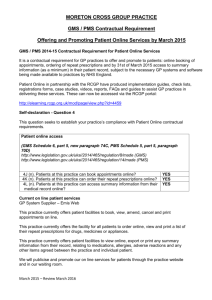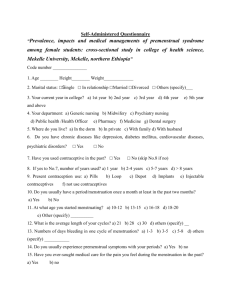PMS
advertisement
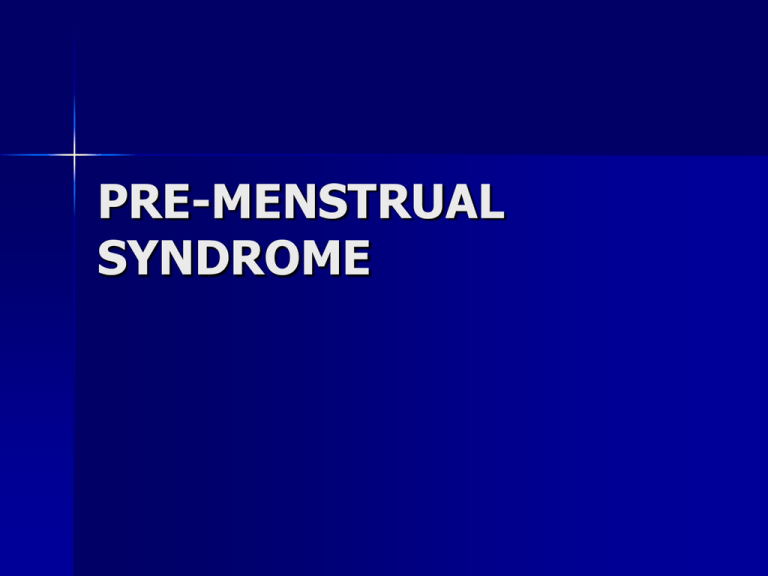
PRE-MENSTRUAL SYNDROME WHAT IS PMS: It is a disorder characterized by a set of hormonal changes that trigger disruptive symptoms in women two weeks prior to menstruation. What causes PMS: Too little progesterone in comparison to the level of estrogen is the cause of PMS. This imbalance is from poor ovulation or no ovulation or stress causing the first two conditions. Need to supplement the progesterone level, relieve stress, develop a healthier life style and eating TYPES OF PMS: PMS-A: Anxiety, nervous tension, irritability, and mood swings. PMS-H: Hyper hydration, water retention, abdominal bloating, breast tenderness,weight gain, swelling of hands and feet. Types continued: PMS-C: Cravings, for sweets, salty foods, increased appetite, headaches, fainting PMS-D: Depression, confusion, fatigue, crying, forgetfulness and insomnia. PMS REPORTED BY WOMEN WHO : Have had children Had pregnancy complications Report minor pain and cramping with periods Eat a high sugar and salt diet Don’t exercise regularly CONTINUED: High stress After taking birth control or HRT ( Hormone Replacement Therapy) DIET MAKES A DIFFERENCE ELIMINATE: Sugar, caffeine, artificial sweetners, cigarettes and alcohol. EMPHASIZE: Whole grains, dried beans, nuts, fresh veggies and fruit. DIET CONTINUED: AVOID: Salty and smoked foods, dairy products. If bloating is a problem, limit fruit and eliminate fruit juices. Treatment: 1. Eat small frequent meals 6x a day to avoid low blood sugar levels. 2. Increase intake of fresh fruit and veggies. 3. Decrease intake of fat, sugar, salt, caffeine and red meat. 4. Exercise at least 20 minutes 3x/wk. Continued: 5. Take PMS vitamins every day 6. Try to relieve stress in your life. 7. Stop Smoking!!!!
